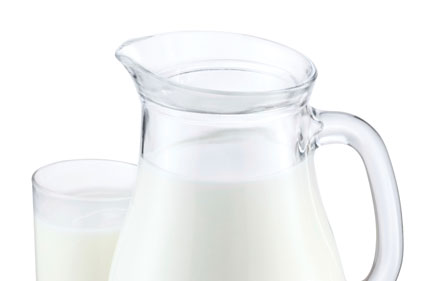The findings, reported in the June 2012 issue of the journal, Cell Metabolism, reveal that high doses of the vitamin precursor, nicotinamide riboside (NR) -- a cousin of niacin -- prevent obesity in mice fed a fatty diet, and also increase muscle performance, improve energy expenditure and prevent diabetes development, all without side effects.
The Swiss researchers, led by Dr. Johan Auwerx, performed the mouse experiments, while the ability to give the animals sufficient doses of NR was made possible by Weill Cornell Medical College researchers, who played key roles in uncovering the biological story of NR.
"This study is very important. It shows that in animals, the use of NR offers the health benefits of a low-calorie diet and exercise -- without doing either one," says Dr. Anthony Sauve, associate professor of Pharmacology at Weill Cornell Medical College.
Sauve is the pharmacologist and organic chemist who has invented a simple method for efficiently synthesizing NR in large scale. He was first to show that NR increases nicotinamide adenine dinucleotide (NAD) levels in mammalian cells. NAD is a central player in energy metabolism. He has pioneered research into the compound, and he is a leader in investigating how NAD can signal adaptation in cells and in physiology.
"The research also suggests that the effects of NR could be even broader," Sauve says. "The bottom line is that NR improves the function of mitochondria, the cell's energy factories. Mitochondrial decline is the hallmark of many diseases associated with aging, such as cancer and neurodegeneration, and NR supplementation boosts mitochondrial functioning."
The Swiss researchers call NR a "hidden vitamin" that is believed to also be present in many other foods, although levels are low and difficult to measure. Nevertheless, the effects of NR on metabolism "are nothing short of astonishing."
With this compound, the Swiss researchers found that mice on a high-fat diet supplemented with NR gained significantly less weight (60%) than mice fed the same diet without NR, even though the mice supplemented with NR ate the same amount of food as mice on the high fat diet not treated with NR. They had improved energy. They were in better shape than the untreated mice, with significantly better endurance and stronger muscles. Additionally, none of the treated mice developed diabetes, as seen in the untreated mice on the high fat diet. And when fed a normal diet, NR treated mice had improved sensitivity to insulin. The NR treated mice also showed lower cholesterol levels. All of these benefits came without toxicity.
While the new study demonstrates that high doses of NR can largely prevent the negative health consequences of a poor diet in mice, Sauve stresses that the effects of high doses of the vitamin in humans have not been evaluated. "It is important to keep in mind that the amount of NR in milk and other foods appears to be small. We don't know what effects NR would have in humans at relatively high doses," he says.
"Still, we have very encouraging evidence of benefits of NR and NAD augmentation in general from this animal study -- and much more work to do," he says.
The study's senior investigator Dr. Auwerx is head of Laboratory of Integrative Systems Physiology at the Polytechnic School in Lausanne (École Polytechnique Fédérale de Lausanne or EPFL) and the first author is Dr. Carles Cantó, also of EPFL.
From the June 15, 2012, Prepared Foods Daily News
